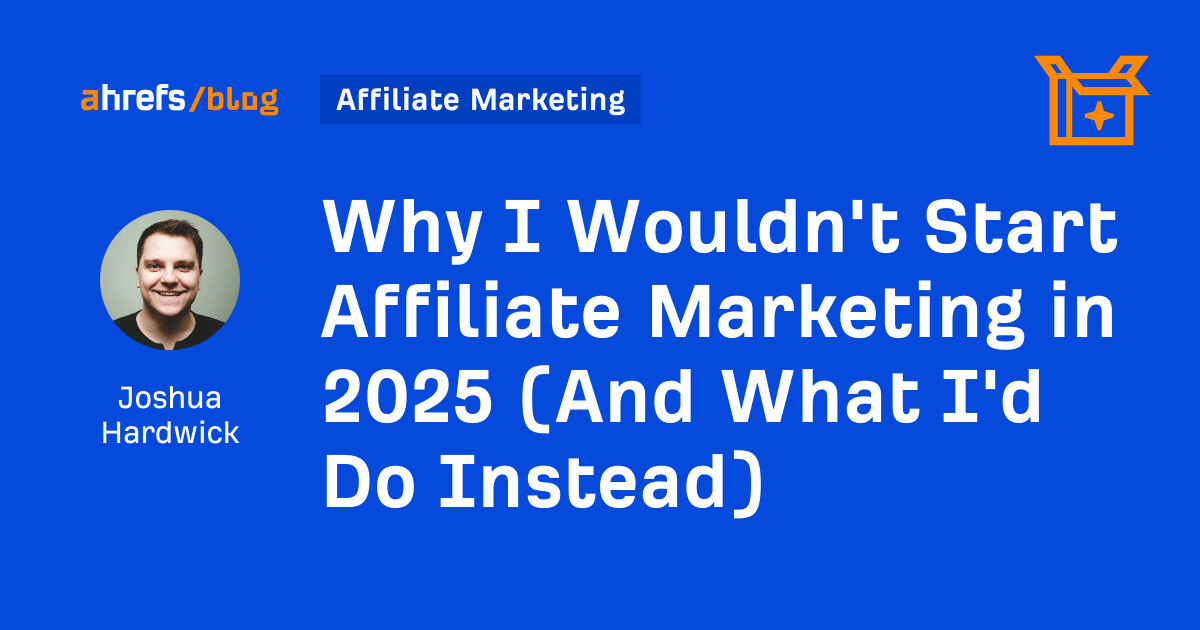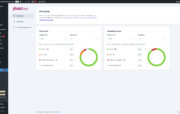Back in the day, I ran a couple of semi-successful affiliate websites. I even once ranked #1 for “best protein powder.” This was a pretty lucrative keyword given its commercial intent and high search volume.
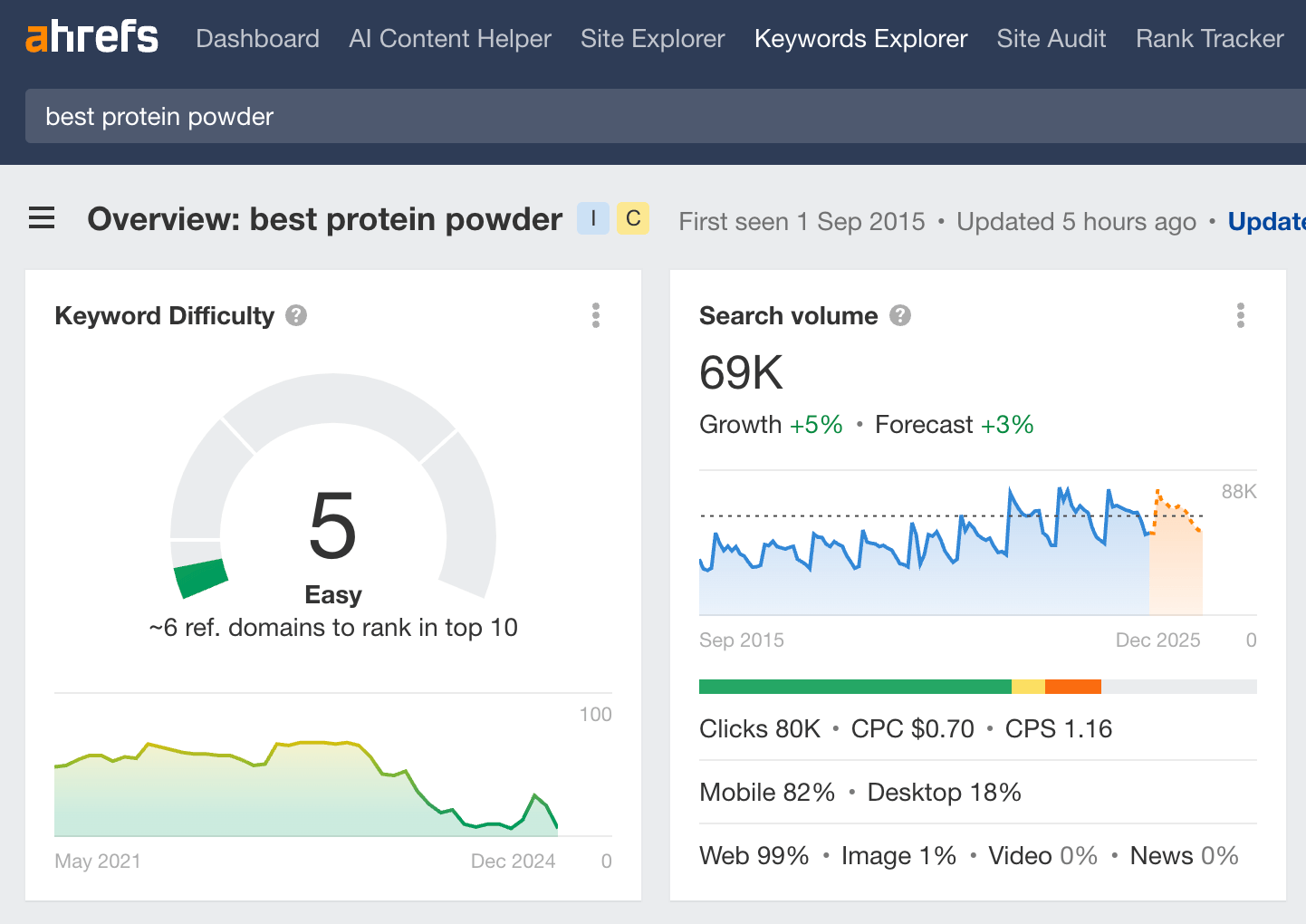
Ever since then, the idea of starting another affiliate site and getting serious about it has always been in the back of my mind. I’ve just never had the time due to my day to day work at Ahrefs.
But today? I don’t think I’d start one even if I had the time. It just isn’t worth it.
Plenty of other online marketers seem to be echoing this sentiment lately, too.

Below are four reasons why I feel like this and wouldn’t start a pure affiliate site in 2025.
Reddit seems to rank in the top five for pretty much every affiliate keyword these days.
This is even the case with YMYL keywords:
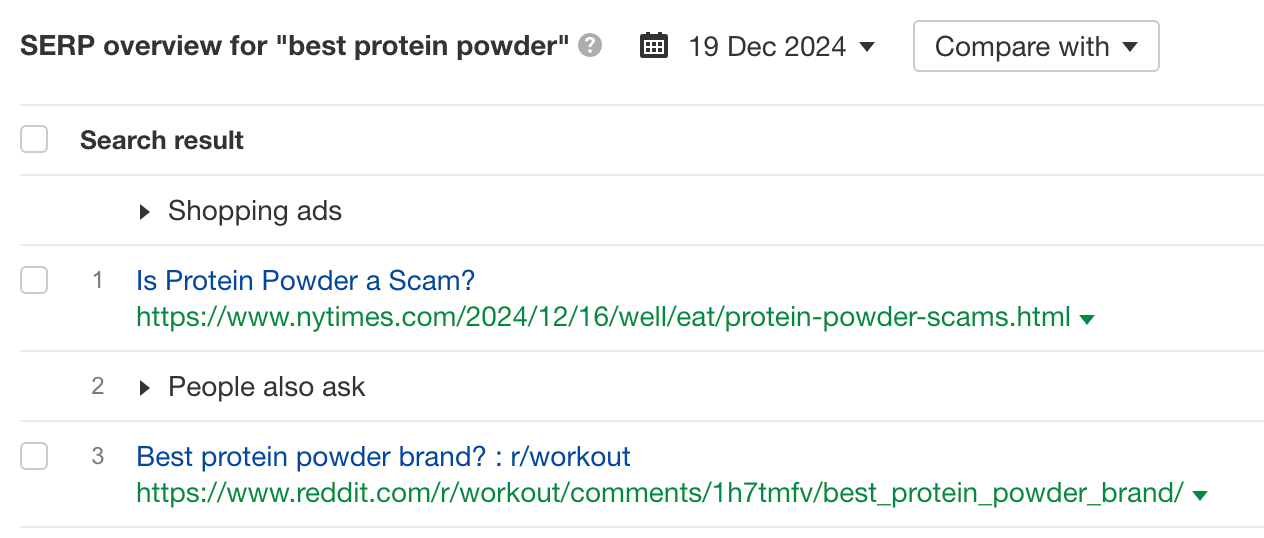
And the problem is only getting worse…
When Google recently penalized the affiliate directories of many big publications like CNN Underscored, it overwhelmingly gave that traffic to Reddit—not independent publishers. I know this because we studied it.
How? We looked at 6,179 keywords that declined or had been completely lost for the directories below between November 18th and November 25th:
- https://www.wsj.com/buyside/
- https://reviewed.usatoday.com/
- www.independent.co.uk/advisor
- www.thesun.co.uk/shopping/
- www.forbes.com/advisor/
- www.newsweek.com/vault/
- www.cnn.com/cnn-underscored/
We then used the Traffic Share by Domain report in Keywords Explorer to see which sites get the most traffic from these keywords. Reddit was #1, taking 6% of traffic.
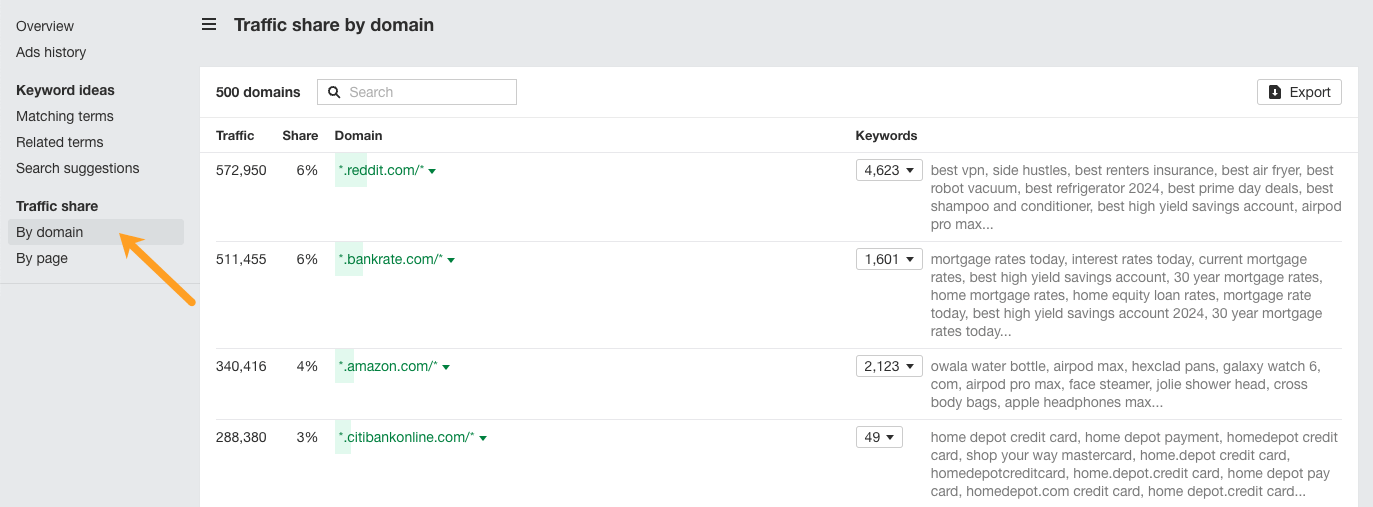
Given that 51% of Reddit threads ranking for product review keywords have spam as the top comment (as per Glen Allsopp’s incredible research), this is a pretty dire state of affairs. For most product review keywords, there’s almost always a niche affiliate site more deserving of ranking than Reddit.
For example, take a term like “best air purifier for cigarette smoke.” Reddit ranks in position #2, but the thread is a total spamfest.
The top comment looks straight from ChatGPT:

The second looks like a disguised product pitch:

The third again looks like a ChatGPT special:
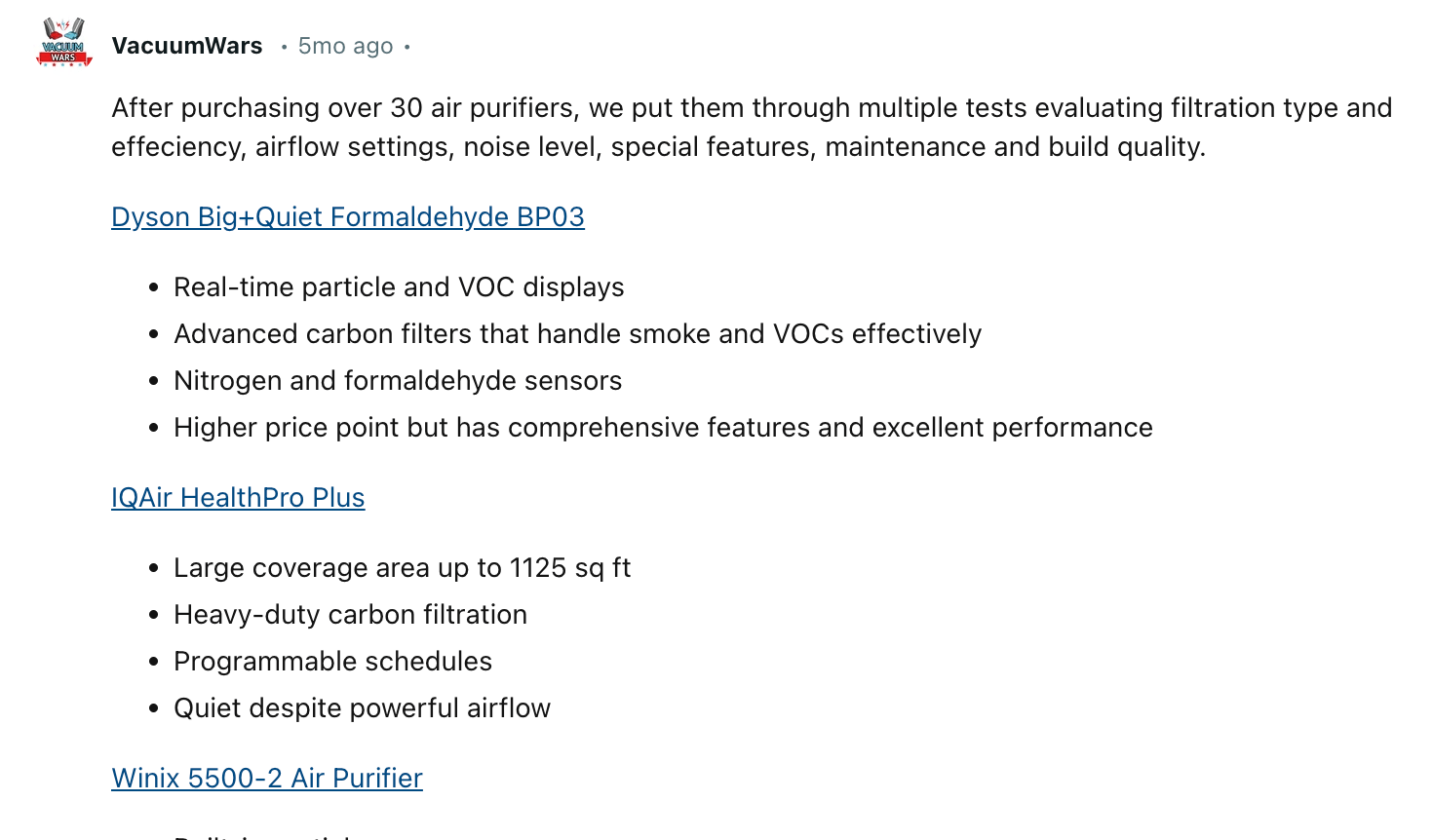
Now you could argue that most affiliate sites are no better—and I would agree. But there are also plenty of niche site owners who invest heavily in their content, spend countless hours actually testing products, and actually deserve to rank.
For example, take a site like HouseFresh which ranks #6 for the same query.
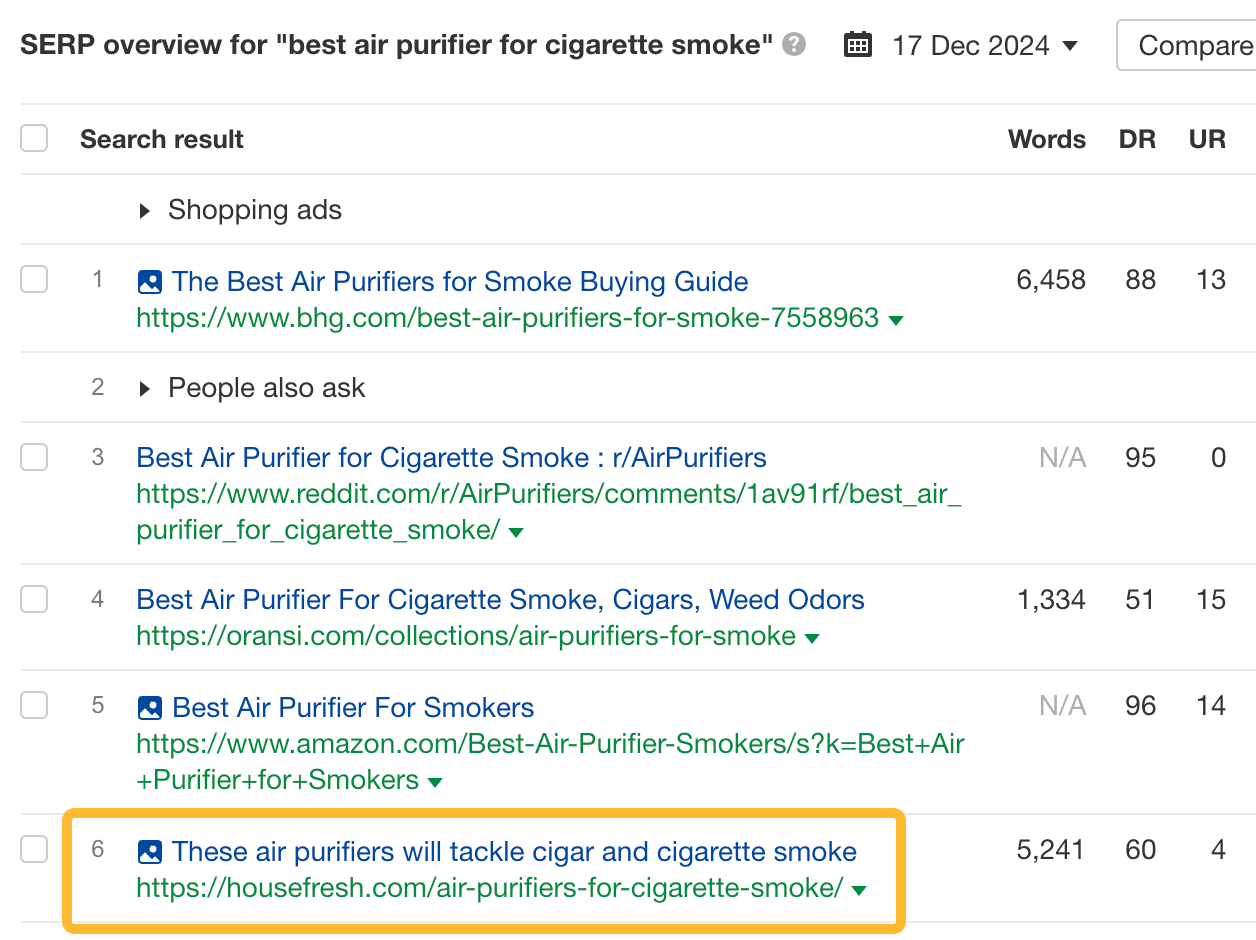
The guys behind this site thoroughly test every product they recommend:
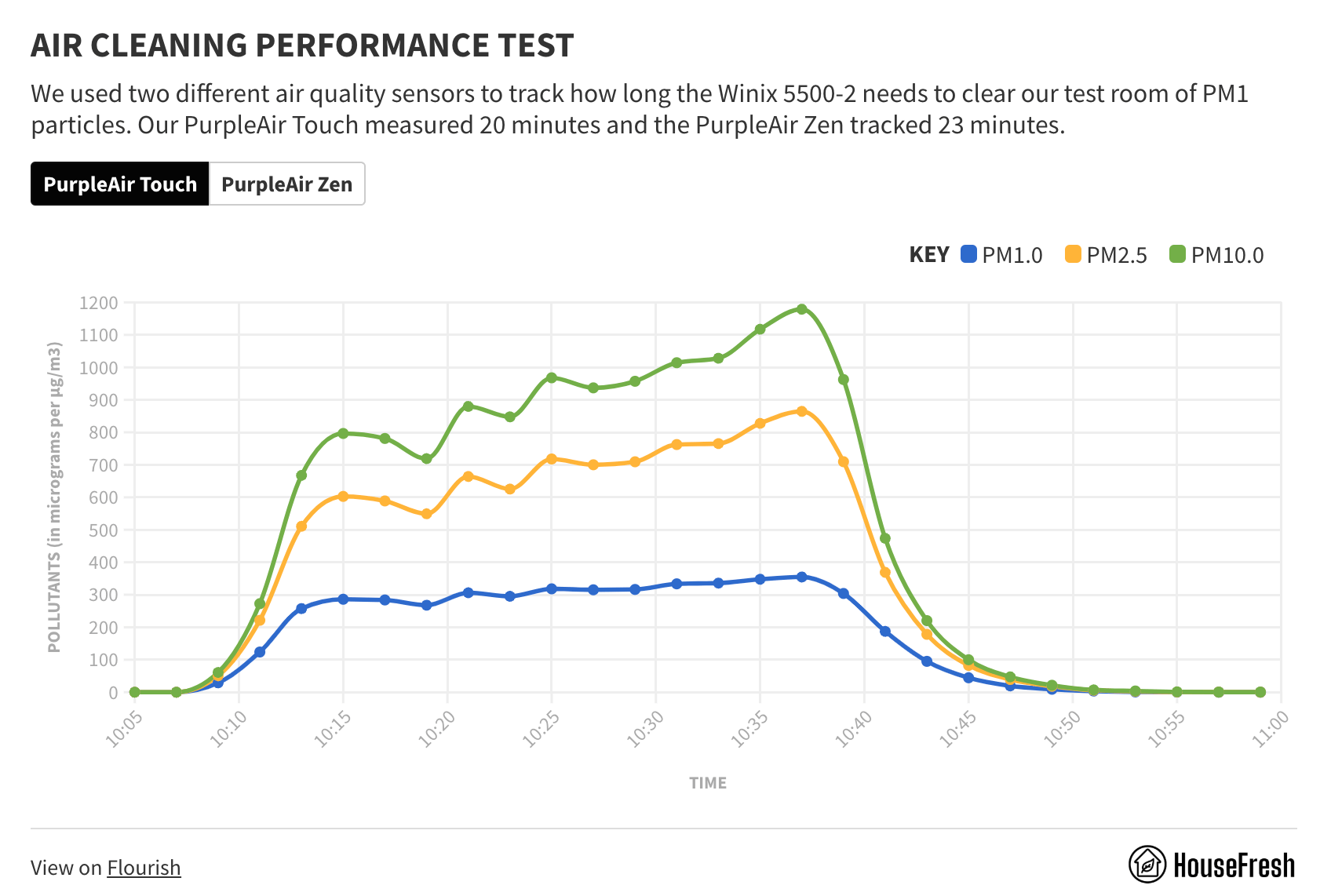
But if we take all the keywords this site ranks in the top 10 for, plug them into Ahrefs’ Keywords Explorer and check the Traffic Share by Domain report, we see that Google is still sending Reddit more traffic.
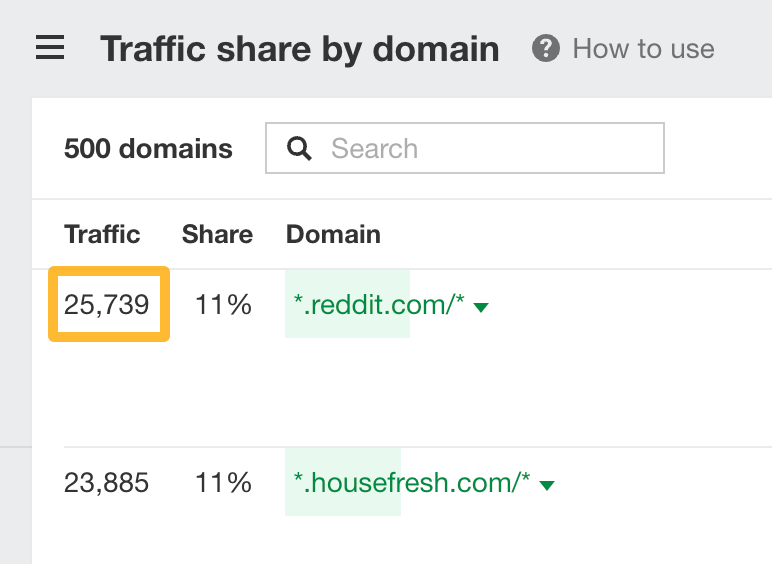
Given the deal Google recently made with Reddit to use their content to train its AI models, this trend probably isn’t going to change any time soon.
Be real: are you really searching Google for product recommendations these days? I hardly ever do. I just go straight to YouTube…
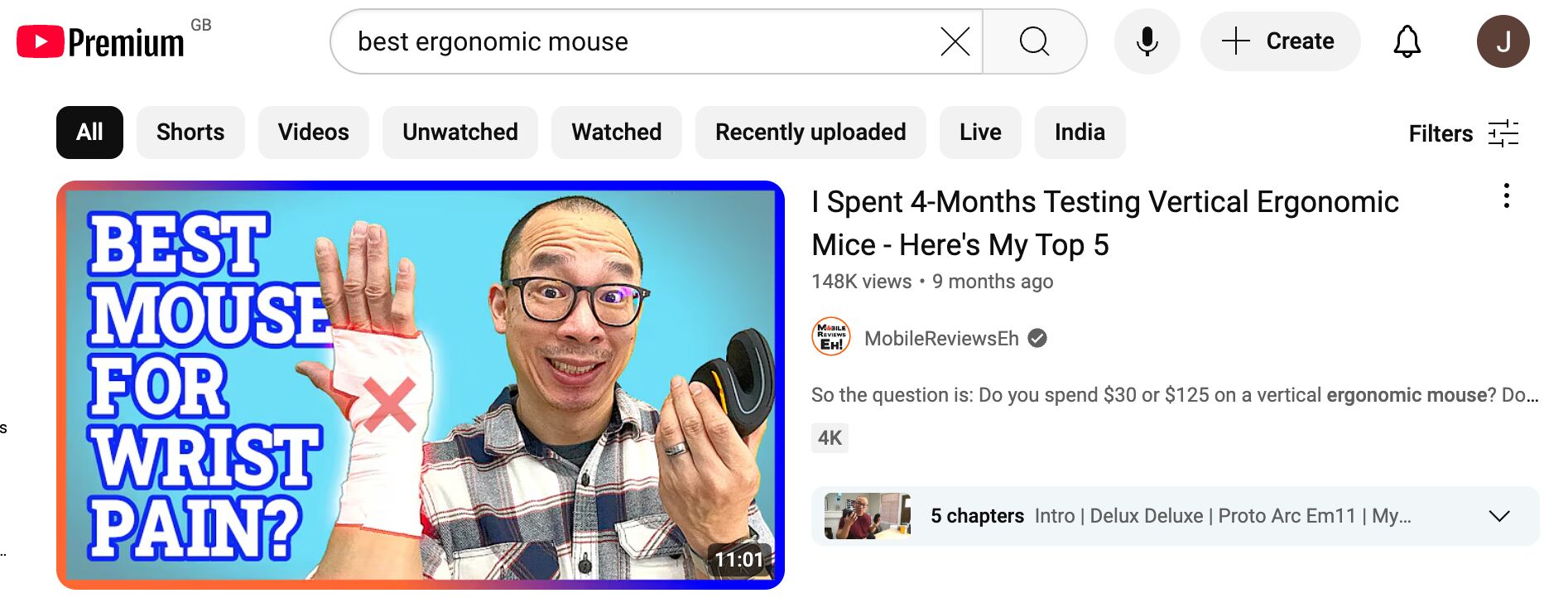
Now obviously, we’re marketers. We know that most of the top Google results are often spammy and shouldn’t be trusted. But what about everyone else?
I don’t have data on this, but I’ve seen mainstream YouTubers talking about it countless times.
For example, this video on why Google search is falling apart has 3.7 million views. In it, he talks about how searching for the best products is pointless because of how terrible Google results are for product searches.
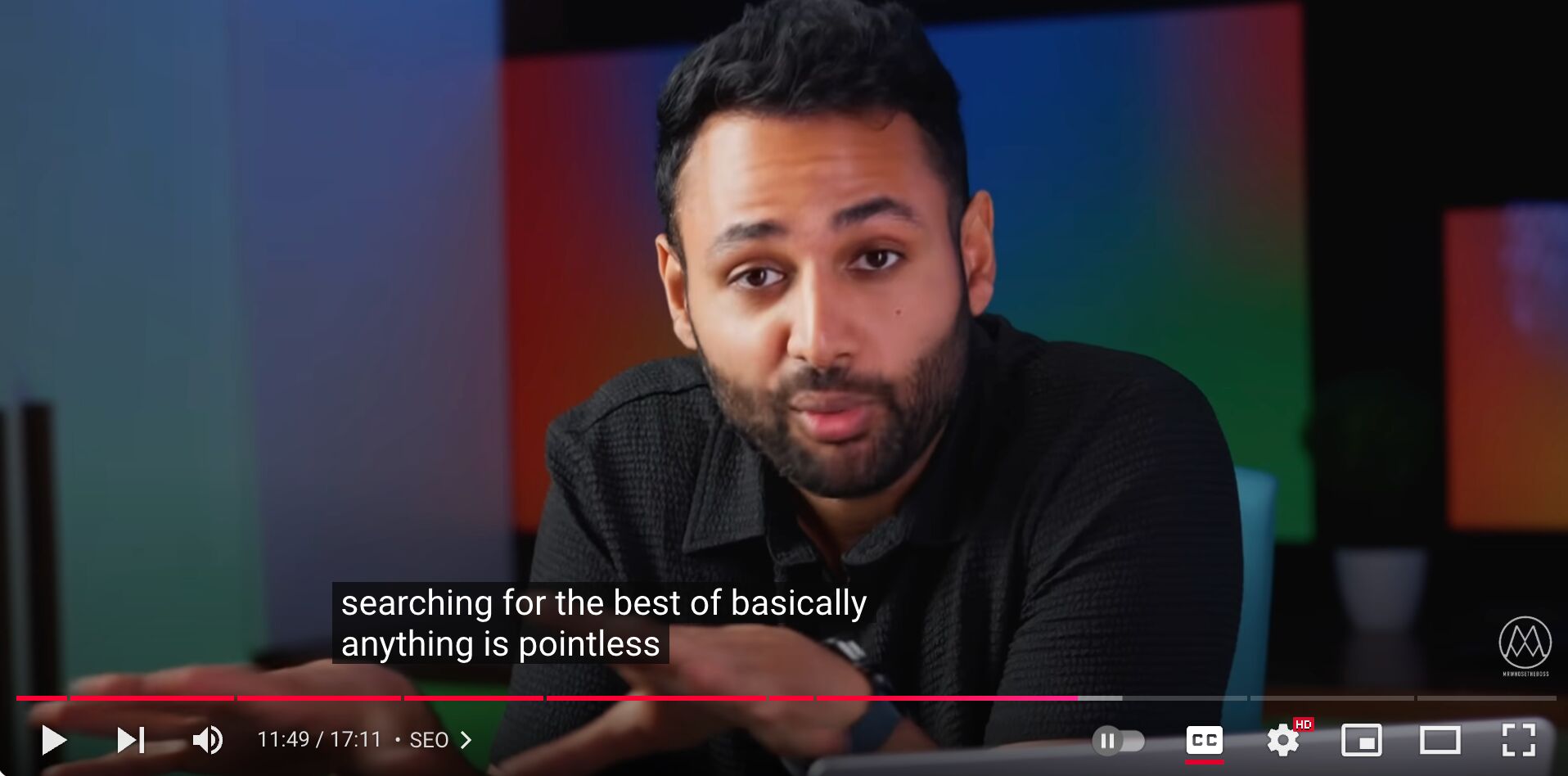
It’s got to a stage now where searching for the best of basically anything is pointless. Almost every single article is a top 10 of products not selected based on their merit but in fact just whether or not they’ll get a kickback when you buy them. […] I guarantee that a large slice of these articles are written with the writer not actually having bought and tested all 10 products themselves.
I think there are three main reasons why the results are so bad:
- The influx of AI spam. Ever since ChatGPT and generative AI came on the scene, it’s become super easy and cheap to create affiliate content. Google seems to be struggling to filter out this spam at scale.
- Parasite SEO. This is where marketers take advantage of the authority of an established website to rank for competitive keywords. It’s why we’ve been seeing sites like Forbes, CNN, and WSJ outranking independent sites for things they have absolutely no expertise in, like “best financial advisors.”
- Google ranking Reddit. Most of these threads are spamfests as I mentioned above.
In my opinion, these three reasons are also interconnected…
Google dealt with the influx of AI spam by boosting the search presence of big brands that it thought it could trust. Those brands then took advantage of Google’s favouritism to rank for terms where they had no expertise. Google then responded to criticism about the lack of diversity in search results (mostly from the SEO industry) by promoting user-generated content on Reddit.
Of course, it’s still possible to promote affiliate links elsewhere like TikTok or YouTube—but that’s a whole different kettle of fish.
When Glen Allsopp analyzed 10,000 product review search results, he found that only four of the top 100 ranking domains were independent sites. The rest were part of news organisations, public companies or large site networks.
Even worse, 36 of the top 100 ranking domains were owned by just three different companies: Hearst, Dotdash Meredith, and Future.
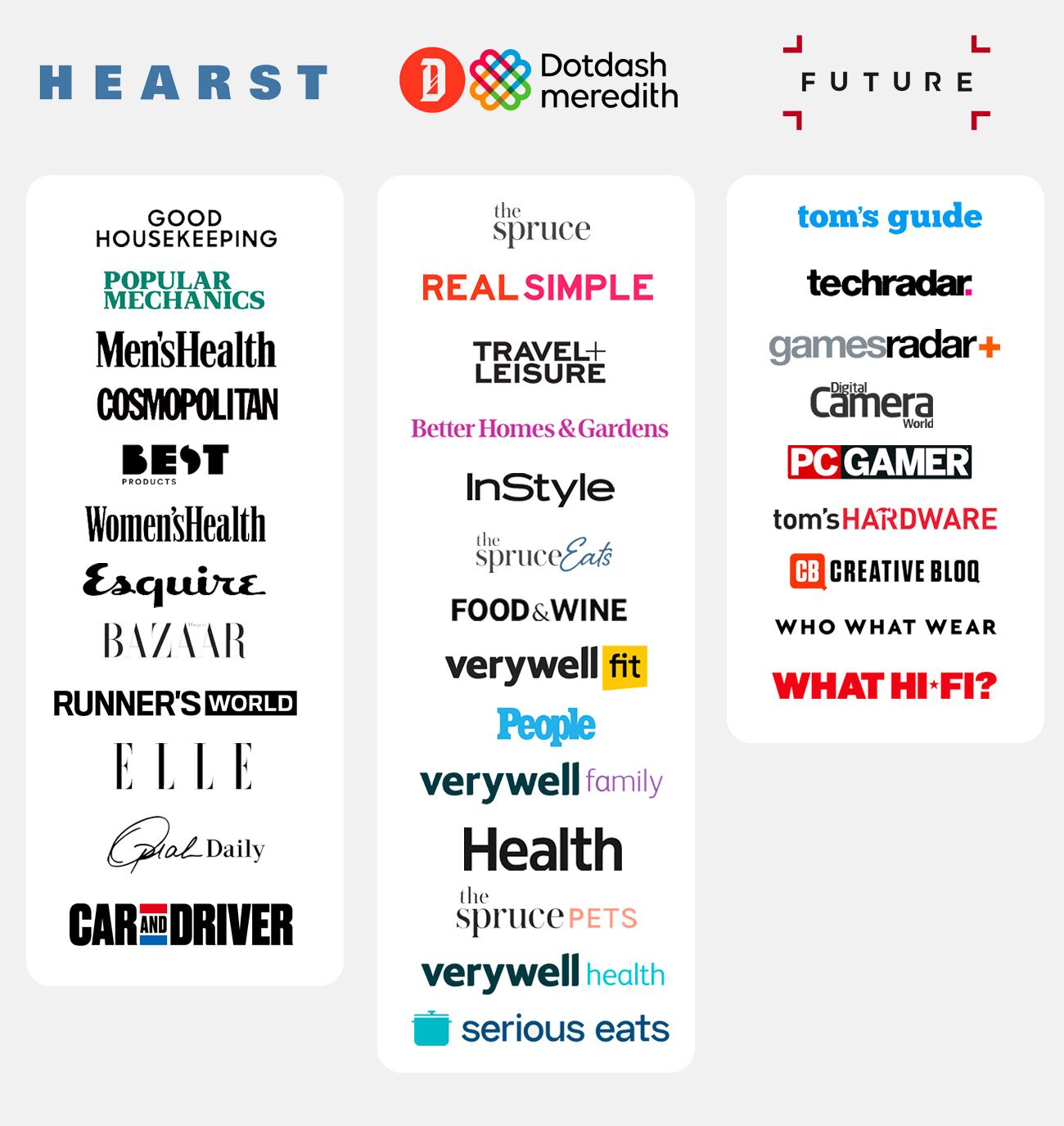
I don’t think this is going to get better anytime soon either…
Looking more closely at our research on affiliate publication drops, the sites reaping the biggest rewards alongside Reddit were all also big names, like Amazon, Business Insider, and CNET.
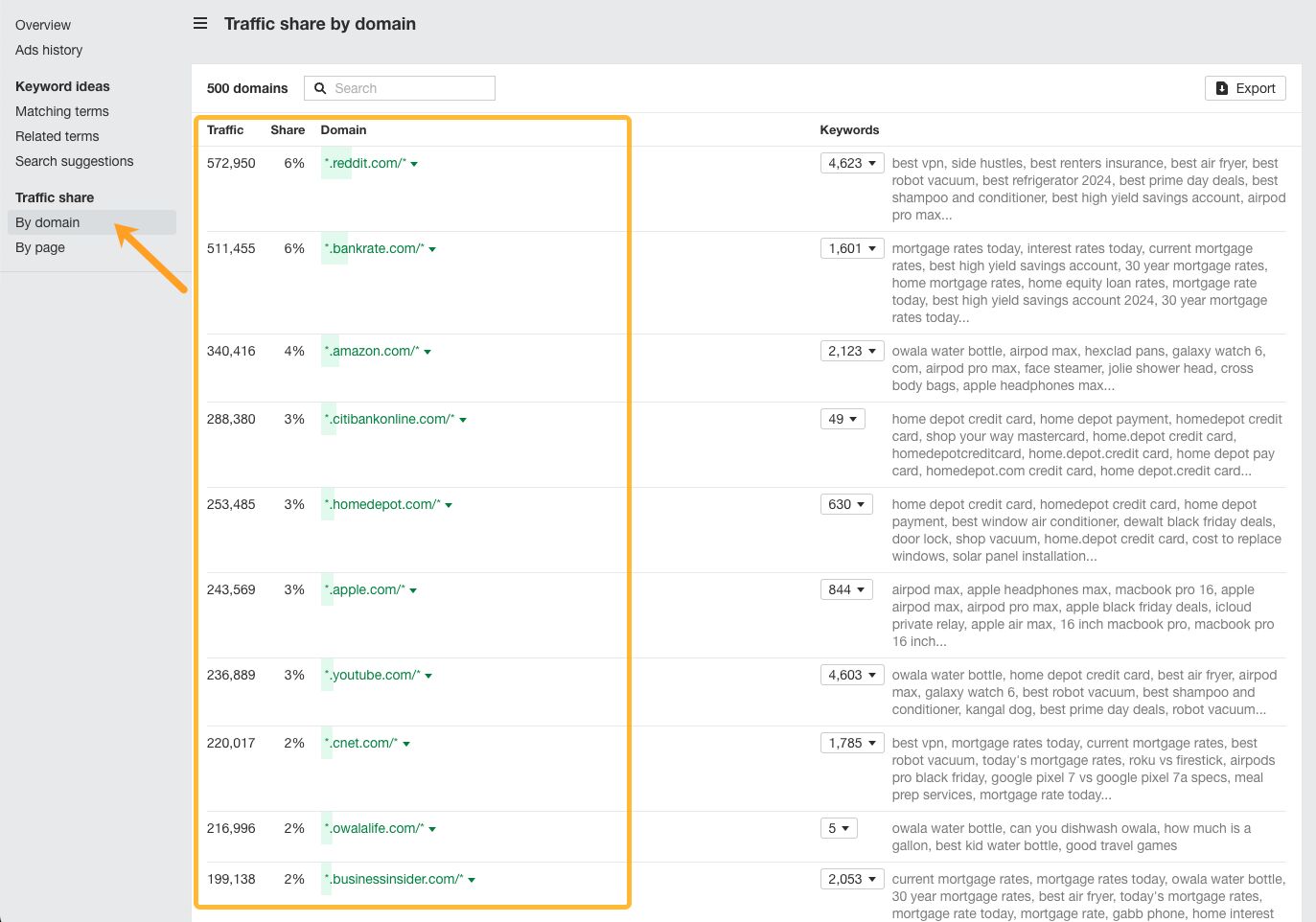
And many of the independent publishers who saw their traffic decimated by Google updates still haven’t recovered…
Take a look at Retrododo, for example:
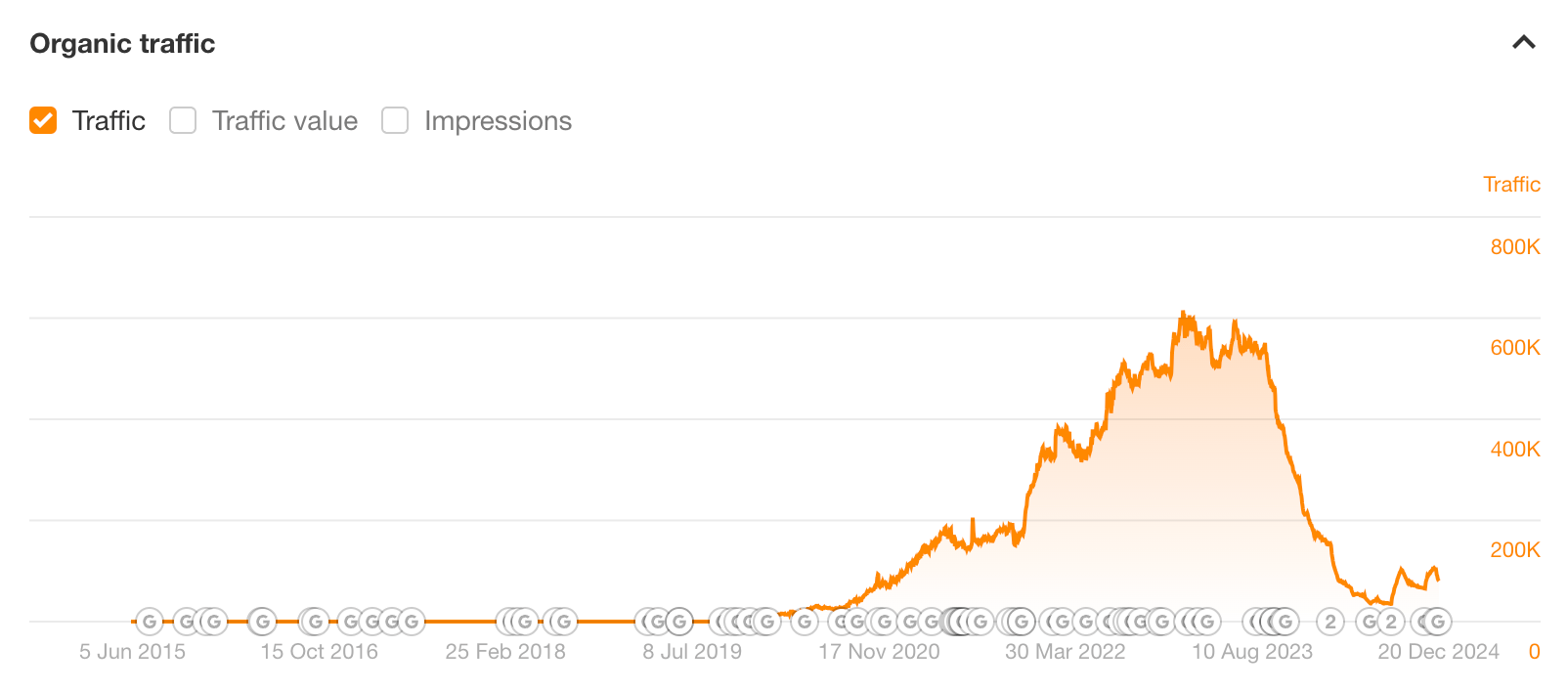
Sure, they’ve recovered a bit—but their traffic is still a shadow of its former self.
Housefresh is about the only site I’ve seen make a near-full recovery, and I can’t help but feel that might have something to do with the amount of fuss they (quite rightly) kicked up about being penalized.
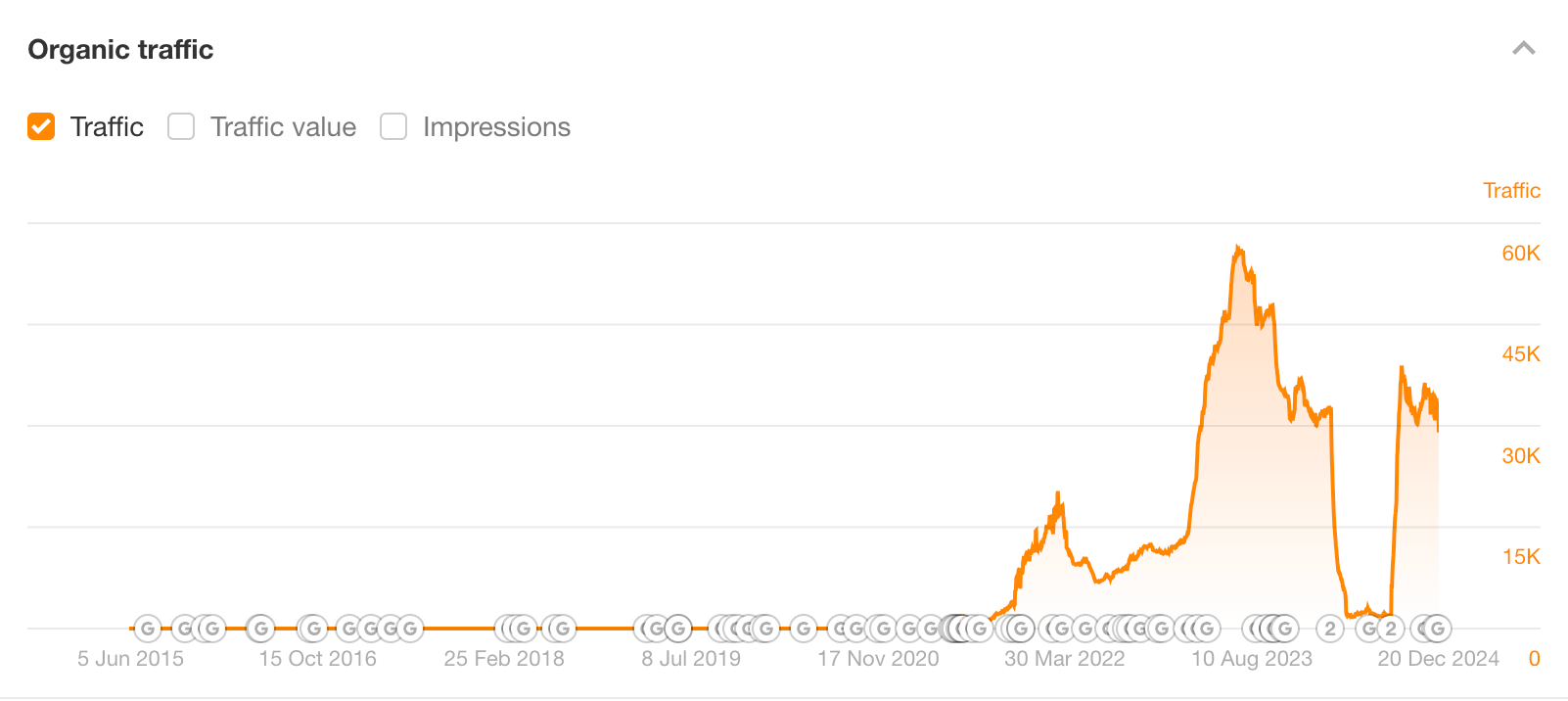
But this uncertainty is precisely the problem…
Maybe I’m misremembering, but I’m sure that things didn’t used to be this way. Back in the day, if you put a ton of effort into creating a quality niche site, you could be pretty sure that Google would reward you. You wouldn’t be scared of the time, effort and money you invested being taken away at any given moment by a Google penalty and your traffic handed to big brands (or Reddit) with mediocre content—at least not to the same extent as today.
This doesn’t mean that the whole thing is Google’s fault. It also seems to be happening because the SEO strategies of big brands are getting more sophisticated.
For example, this post from HouseFresh talks about a strategy called keyword swarming allegedly used by Dotdash Meredith to push down smaller sites in the SERPs:
“Swarming is about drowning out a competitor,” said the person who reached out. The objective is to “swarm a smaller site’s foothold on one or two articles by essentially publishing 10 articles [on the topic] and beefing up [Dotdash Meredith sites’] authority.”
Bottomline? I just wouldn’t have the confidence these days to invest significantly in an affiliate site. Even if I created industry-leading content, I wouldn’t have faith that Google would actually rank it above big sites.
Okay, this one is more of a predication… but I think there’s a very real possibility of it happening.
Affiliate sites have worked well historically because of how people search. If you want to find the best air purifier, you go to Google, search for “best air purifier,” click a listicle in the search results, click one of their affiliate links, and… BINGO, the site makes money.
But what if Google adds AI overviews with product recommendations to affiliate searches?
I think this has the potential to cut out affiliate marketers altogether.
For example, if you type “best air purifier” into Gemini or ChatGPT right now, you get a list of recommendations:
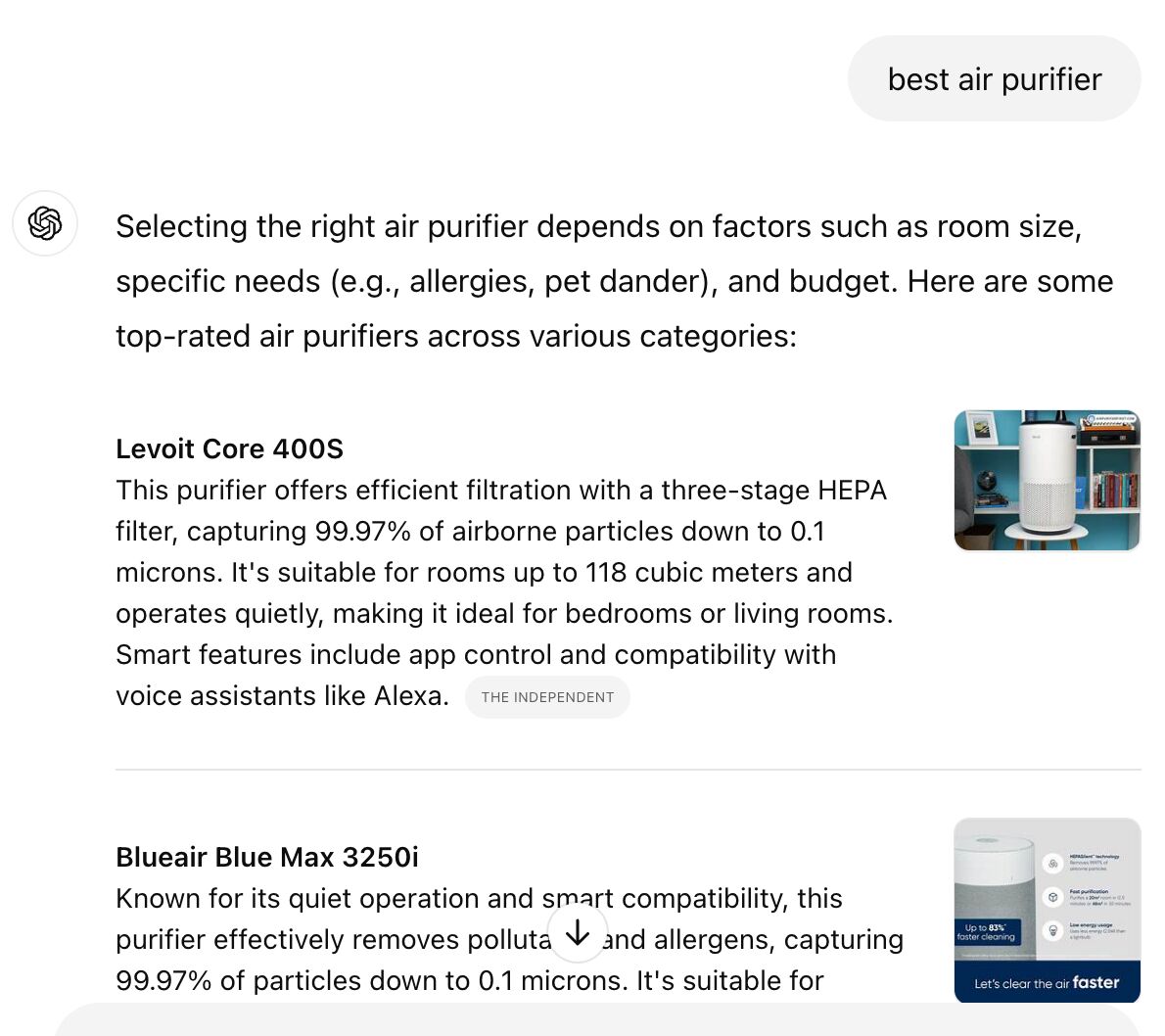
It’s pretty easy to then research these recommendations yourself on YouTube or TikTok.
If Google adds these kinds of AI overviews to product review searches, people wouldn’t really need to click on a search result anymore. They could just research the products AI recommends themselves.
Of course, they may still choose to research those products in Google, so affiliate marketers could still make money from product reviews. But I think it’s more likely that they head to YouTube or TikTok for the reasons I mentioned earlier.
As for why Google would bother, it’s arguably a better user experience—but they could also monetize these AI overviews with PPC ads.
For example, Google already shows sponsored results when you search for most products:
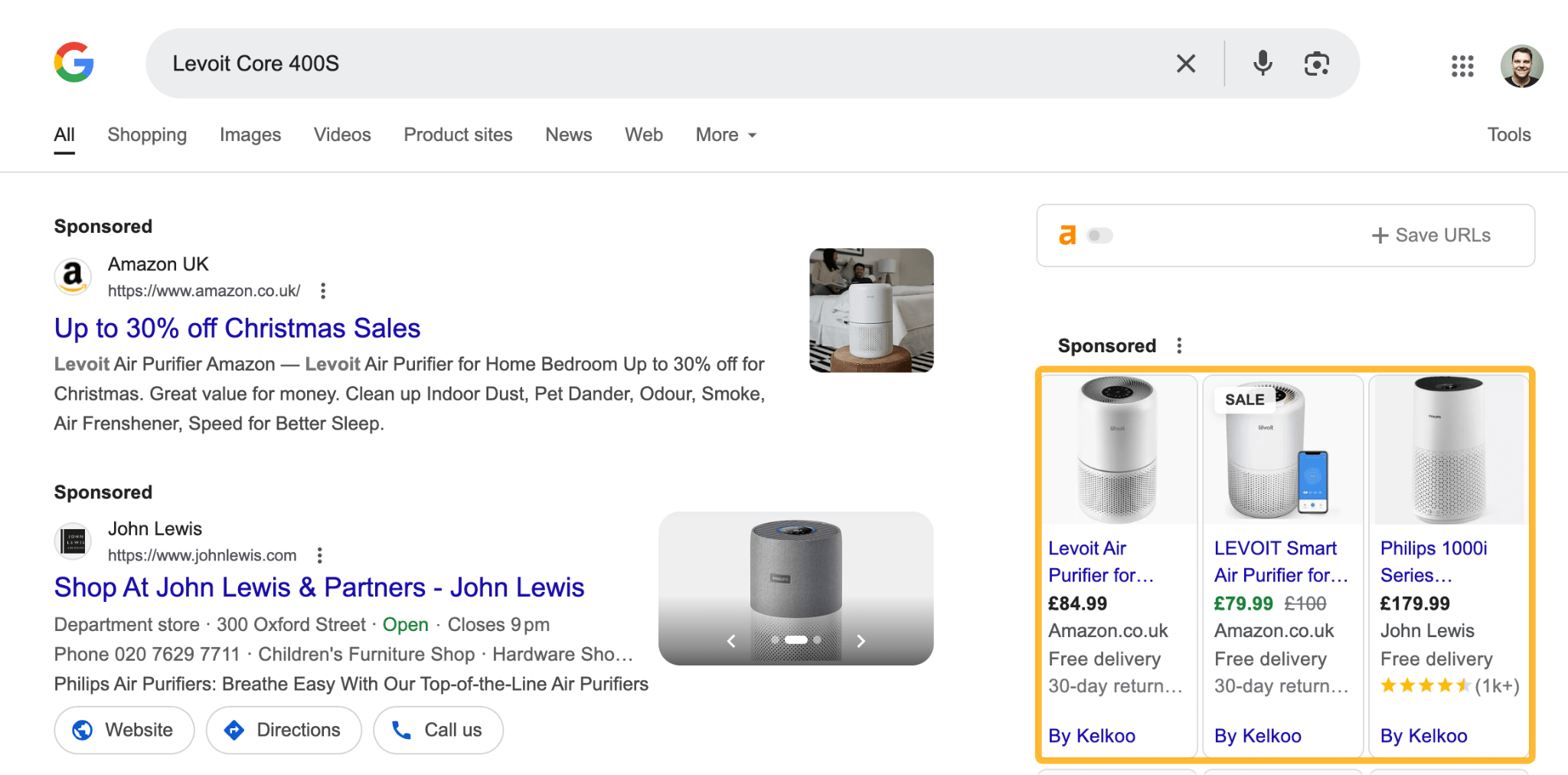
Google could easily just charge these brands for clicks when the product is recommended in AI overviews.
I think Matt Diggity has the right idea: switch to ecommerce.

If you read my takeaways from interviewing Ash Young of CarMats.co.uk, you’ll know that ecommerce can be extremely lucrative—even in boring niches. Ash is on track to do £10M in total sales in under 5 years.
There’s a simple way to find ecommerce niches in Ahrefs, too:
- Run a blank search in Keywords Explorer
- Filter for non-local and non-branded keywords with transactional intent
- Filter for low difficulty keywords, KD <= 10
- Filter for keywords with low DR sites ranking, DR <= 40
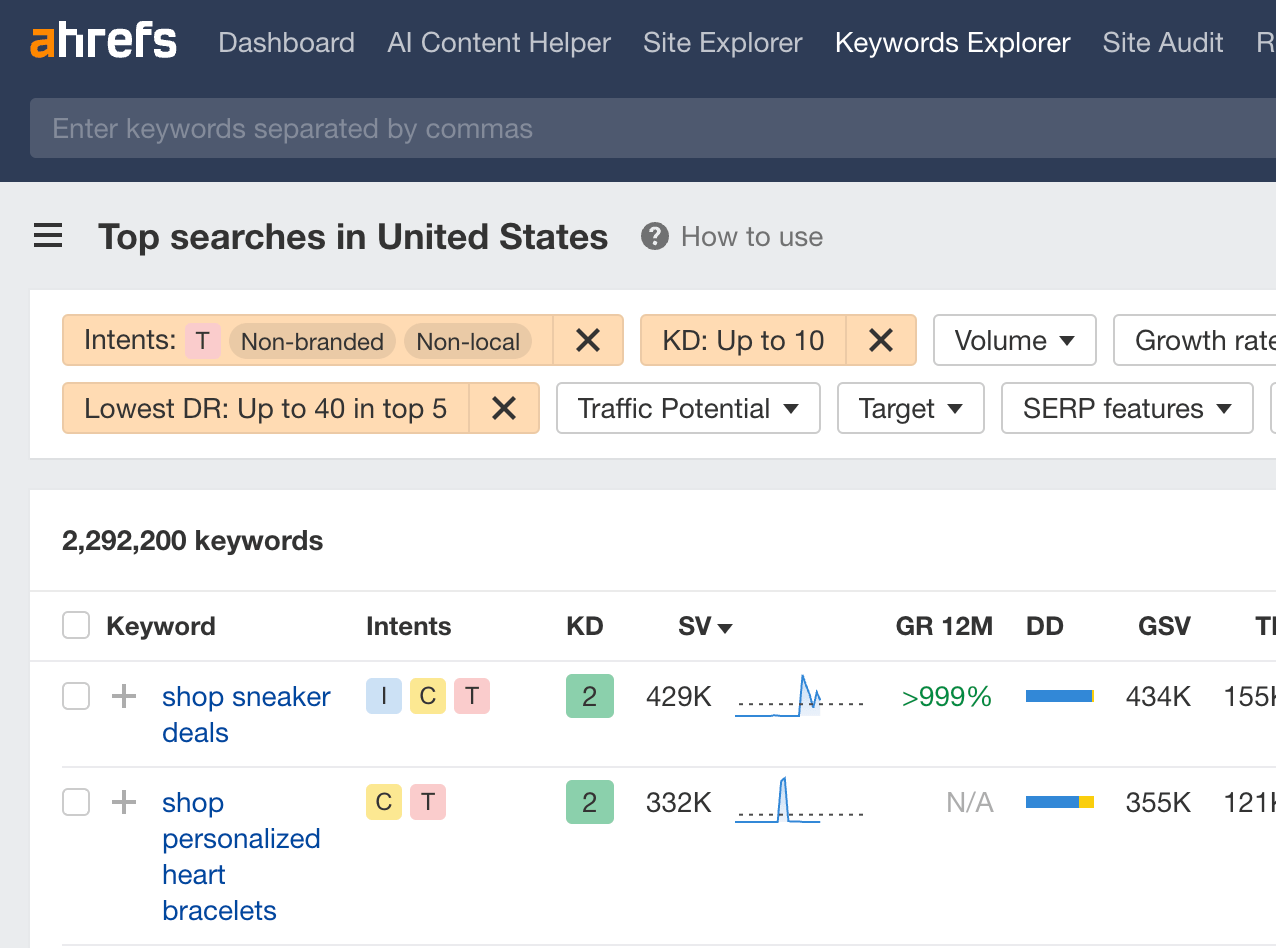
It’s then simply a case of looking for interesting niches in the results…
For example, there are 33K estimated monthly searches for “leg warmers” in the US, and plenty of pages from low DR websites ranking with few or no backlinks.
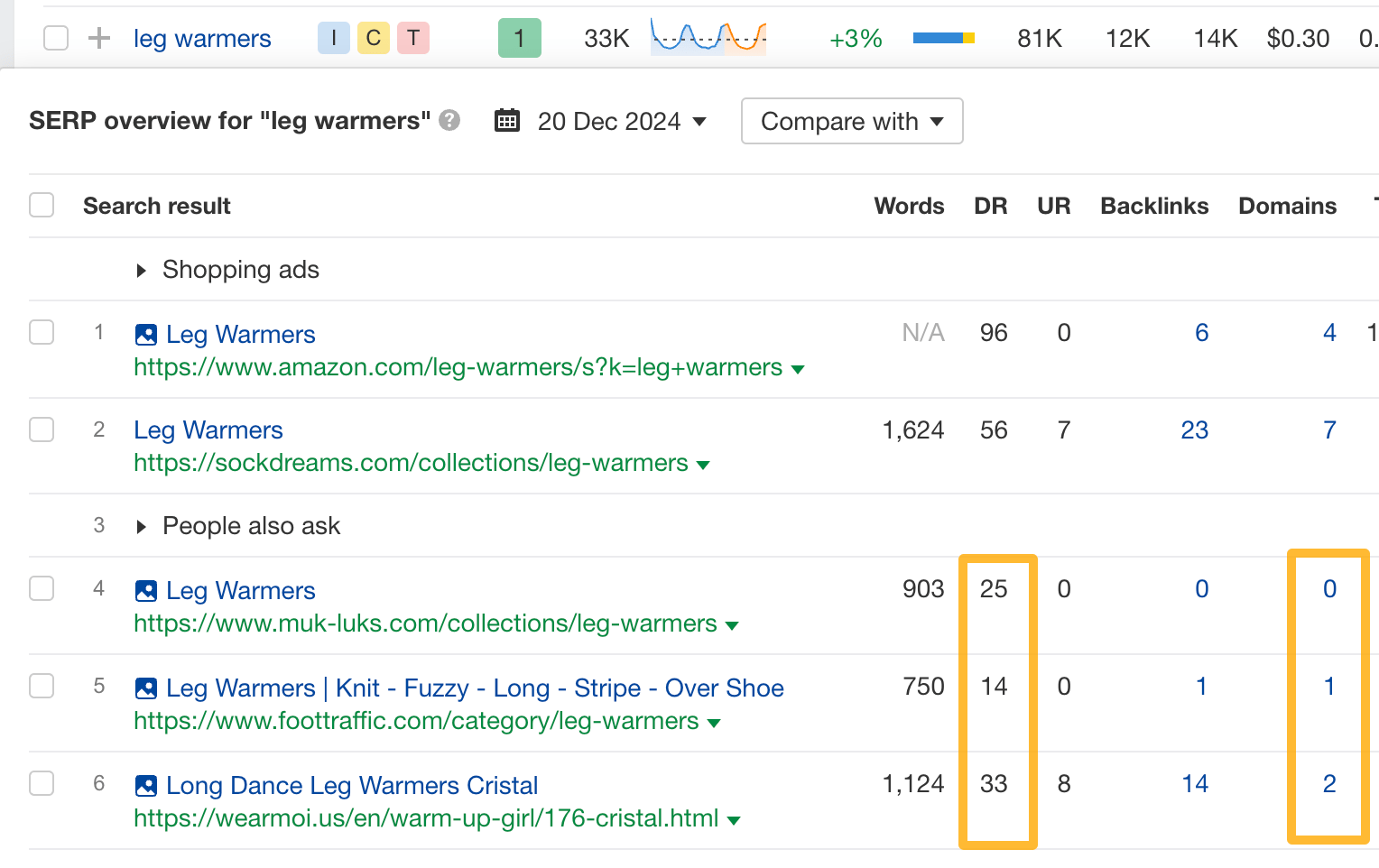
If we plug “leg warmers” into Keywords Explorer as our seed keyword, go to the Matching terms report, apply the same filters, and then cluster by Parent Topic, we have a low-competition ecommerce niche pretty much ready to go.
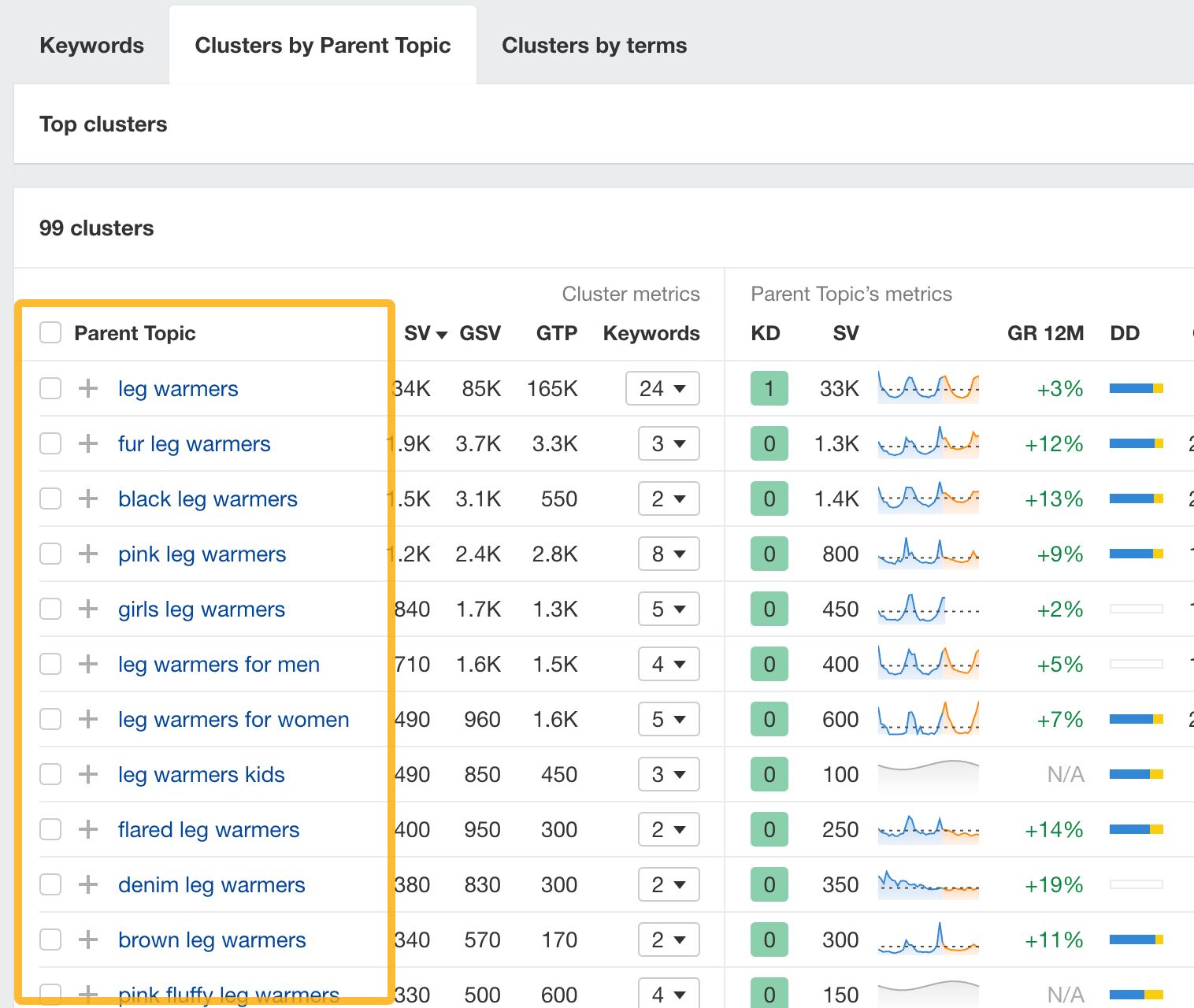
I’m sure you wouldn’t need to move mountains to rank for most of these terms. It would probably just take some basic SEO.
If you want to learn more, read our guide to ecommerce SEO.
Got questions? Ping me on LinkedIn or X.
I’m Manas Ranjan Sahoo: Founder of “Webtirety Software”. I’m a Full-time Software Professional and an aspiring entrepreneur, dedicated to growing this platform as large as possible. I love to Write Blogs on Software, Mobile applications, Web Technology, eCommerce, SEO, and about My experience with Life.


